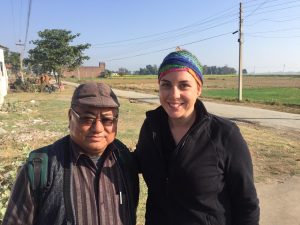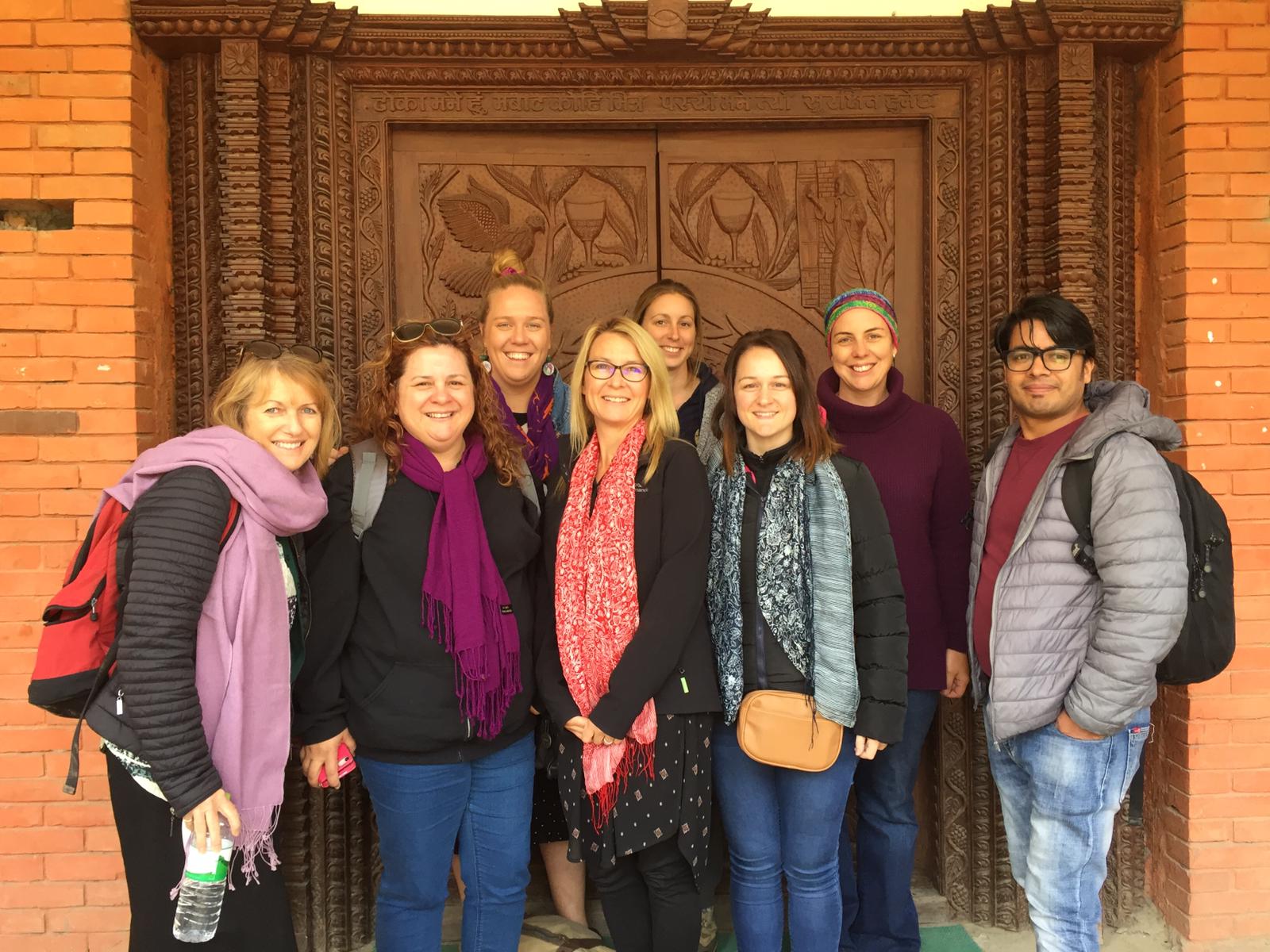In January I travelled to Nepal with a group of amazing women (and one amazing man) to see the work of Baptist World Aid and their partner NGO, United Mission to Nepal (UMN). We travelled for 8 days through rural Nepal and visited some inspiring women and children who are flourishing in business, education and community. It was an incredible experience that I hope has changed me forever.
Faith Baptist Church
Nepali people only have a one-day weekend (I know!!) on Saturdays, so on Saturday, we were off to church. We took a twenty-minute drive through the city to a cement building that was home to the Living Baptist Church. We were early so we sat close to the front and waited for the service to start. The Pastor came and introduced himself and explained that he would like us all to introduce ourselves during the service. I looked around and the building was only half full.
After the announcements, we were invited to stand and tell the congregation who we were. I turned around and was surprised to see that the building was packed! It seems that Baptists in Nepal have many things in common with Baptists in Australia, including a tendency to rock up during the second song and sit in the back.
The service is best described using one of my favourite Christianese words, ‘Baptacostal’. Think of an upbeat, spirt-led service with lots of free worship and hands in the air, way too many announcements and then a pretty straight-shooting, Bible-focused talk, all in Nepalese, with the occasional truth-bomb dropped in English. (“Know yourself, know your bible.” “Your success depends on your failure.” “If you’re living out of your calling, you’ll be happy and you’ll enjoy it!)
I had volunteered to speak on behalf of the group, to thank the church for their hospitality and share in more detail who we were and why we were in Nepal. It was my first time speaking with an interpreter. I figured if I smiled a lot and said (genuine) complimentary and encouraging things, I’d be okay.
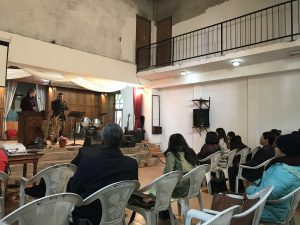
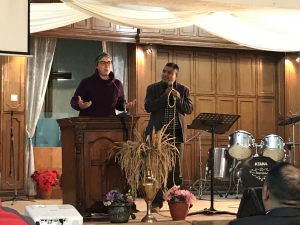
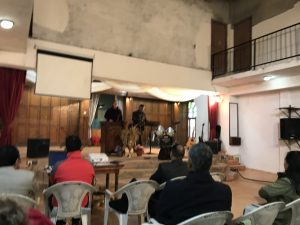
Church Planting
After church, we met with the founding Pastor who was keen to share some of the history and priorities of the church. He told us that 18 churches had been planted out of Faith Baptist, and it was their priority to start many new congregations so that people didn’t have to walk for hours to get to church. As soon as there were enough Christians coming from a particular area, the church would train leaders and begin another congregation.
Later, a UMN leader would tell us that for Nepalese Christians, church planting and growth was a huge priority and an expectation. He said, “when a young couple gets married, after one year, people are asking, “where is the baby?” In the Nepali church, if you haven’t planted a church within one year, they’re wondering, what has happened?”
It was inspiring and challenging thinking!
Challenges for the Nepalese Church
1. Lack of religious freedom: it is actually illegal for Nepalese Christians to openly tell non-Christians about their faith. They are allowed to practise their faith and gather together, but not allowed to overtly proselytise. While the rate of imprisonment for this crime is not high, it is a real possibility.
2. Social Stigma: it is a sad reality that there are some pastors in the Nepali Church who are living the high life. My friend explained it like this…
“Imagine two boys, from the same area, who receive the same education, obtain the same university degree and marry and raise a similar family. The man who uses his degree to work in a secular job will barely be able to afford to house, feed and educate his family. But the other man becomes a pastor, and he has a nice house, a fancy car, wears a suit and owns the church building.”
Obviously, this is not every Nepali pastor, there are many good ones there, but it seems that there is very little accountability for a pastor regarding financial stewardship. There is a cynicism around the way pastors use the financial giving of the church. A wealthy pastor with a very poor congregation is a very bad look!
3. The confusing mix of cultures and religions. It is difficult to tell where Hindu religious practices ended and Buddhist ones started. When I asked a man what religion he identified with most, he said “both”. I was constantly wondering how a missionary might use the cultural and religious symbols and practises to explain who Jesus is and His significance for their lives.
Later in the week, we would meet a man named Stephen who was the pastor of an Assemblies of God church in a very spiritually significant area. Over breakfast, he explained the spiritual battles that his little church family faced. His tears were evidence of his personal conviction and the struggle of living as a follower of Jesus in such a place.
Stephen’s parents were of the first generation of Nepalese Christians as Nepal only allowed the very first Christian aid workers into the country in the 1950s.
After meeting Stephen I went back to my room and had a long cry. I wanted to give him money for the church they longed to build. It wasn’t the right thing to do there and then and would have put my hosts in an awkward position. But I am praying through how God wants me to respond to Stephen and the love that I felt for him.
